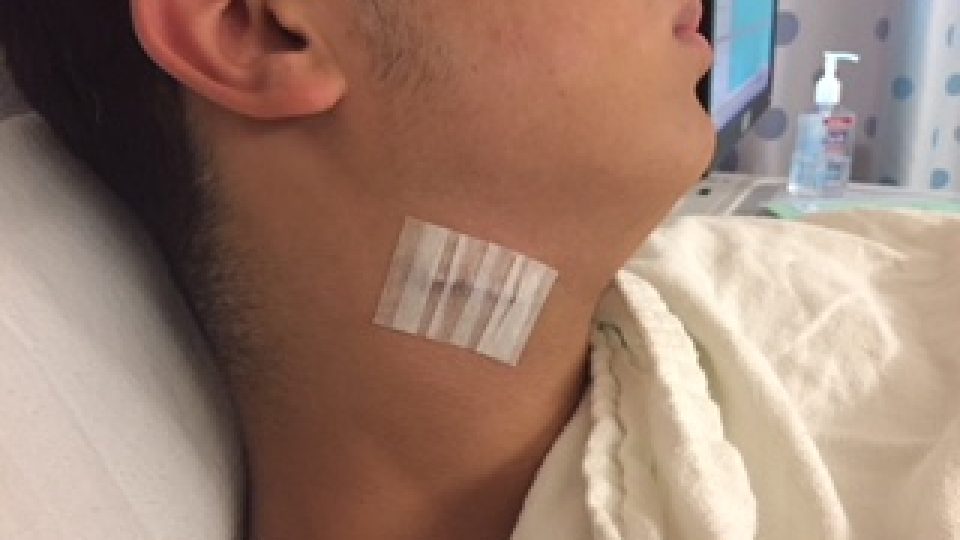Why I got a second opinion even though the first was good news

Relief. We could finally breath, sleep, and eat.
After about 1 month of tests, doctor visits, blood draws, x-rays, surgery, and a lot of waiting, we received the call that we had been waiting for. “It is negative. Go about your life. You have a healthy 19-year-old,” said the pediatric ear nose and throat surgeon.
Anyone who has had to wait for pathology lab results knows the waiting is awful. The lab just says something like, “you should hear back in 7-10 days.” But, you wonder, how can it take that long to look at a few slides? Don’t they know that what they say to us will affect us for the rest of our lives, especially if it’s bad news?
Go get a second medical opinion
For us, the news was good. But for so many people, the news is bad. When bad news is received, people often decide to get a second opinion, reasoning that before they start a potentially harmful course of treatment, they want to make sure the diagnosis is correct. Sometimes, a treating doctor will even suggest a second opinion and facilitate the process. These people will have to wait again, as another pathology lab looks at the slides (or another radiologist looks at the images), and they wait for that call.
Second opinions can often prevent misdiagnoses or improper treatment plans that could lead to even more problems down the road. Most often (but not always), it turns out that the first opinion was in fact correct, and the second opinion just reassures you that you are on the right medical path.
Why then, when the news is good, do we just take it at face value and go about our business? Most likely, it is because we heard what we wanted to hear and therefore didn’t even consider questioning the diagnosis.
An “all good” second opinion
After about a week of feeling extremely happy, I told my son that I was seeking a second medical opinion. “Why” he asked, “the news is good.” The answer is that I have seen too many cases of misdiagnosis or delayed diagnosis that result in catastrophic injuries, cases where the news was good — until it wasn’t — and by then, it was too late.
In our case, I did quite a bit of reading about the pathology involved, and I saw some disturbing articles about “false negative” readings for this particular diagnosis. In other words, in this specific situation, pathologists don’t have a great batting average; they interpret the slides as negative — when in fact they are positive — about 10-15% of the time.
We all make mistakes, even doctors, lab technicians, medical records personnel; no one is perfect. A recent study published in BMJ Quality & Safety points out that misdiagnoses are common. This study demonstrated that one out of 20 adults are affected by a diagnostic error. Yikes. Lab results pass through many hands before they get to you. At each point, there is an opportunity for error.
In some cases, error rates are well known. Some tests have high “false positive” rates. That means the test comes out positive, even though the patient doesn’t really have the condition. That’s okay in certain circumstances, especially for “screening” tests, tests where you want to catch everyone who has –or may have– the condition. Then, more sophisticated tests can be used to distinguish those who really have the condition from those who don’t.
Other tests have high “false negative” rates. This means that the test says you don’t have the condition, when in fact you do. It was this type of test that we were dealing with recently. I was not comfortable with the high false negative rate. So, I asked the doctor to help me arrange a second opinion. I expected to get a bit of backlash. I thought the doctor would say, “no need. The test was negative. All is well.” Instead, he agreed with my analysis and helped arrange for a second pathology review.
Now, when the test came back negative, we were really relieved. Having a second pathologist review the slides made us all much more confident in the results.
Now, it isn’t always necessary to get a second opinion. It depends on the test, and it depends on the seriousness of the condition involved. But, if you are concerned about a particular test result, you should not hesitate to talk to your doctor about your concerns. There is nothing wrong with telling your doctor why you’re worried and asking whether a second opinion would make sense.
If you think you or a loved one has been the victim of a medical error, please contact me at (216) 687-0900 for a free consultation on your medical negligence case.




